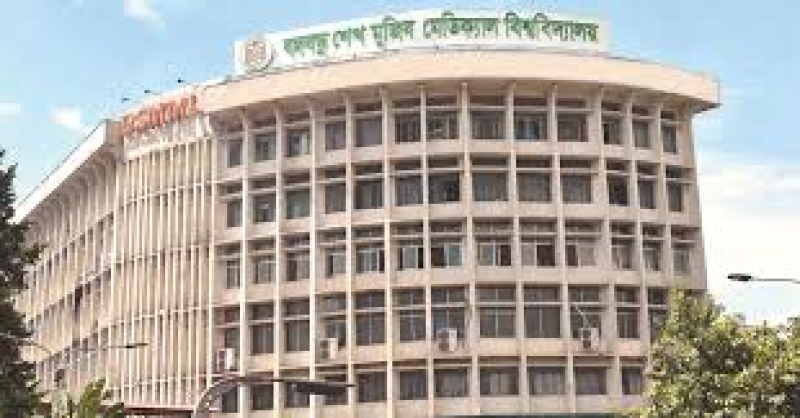- Jamaat Ameer calls meeting with Tarique 'an important moment |
- BNP govt to take office with economy at a crossroads |
- Pahela Falgun brings colour, music as spring begins |
- New MPs, cabinet members to be sworn in Tuesday |
BSMMU Calls to Reduce Dependence on Foreign Medical Services

The administration of Bangabandhu Sheikh Mujib Medical University (BSMMU) has underscored the urgency of reducing Bangladesh's reliance on foreign medical services by advancing the country's capabilities in kidney and liver transplantation, as well as infertility treatments.
In a meeting held at the Super Specialised Hospital on Monday, Vice-Chancellor Prof. Dr. Mohammad Shahinul Alam emphasized the need for providing world-class healthcare within the country. He stressed that developing advanced medical treatments domestically would both benefit patients and help conserve foreign currency currently spent on overseas medical procedures.
The meeting was attended by a range of senior officials, including newly appointed Director (additional responsibility) and Dean of the Basic Science and Para Clinical Science Faculty, Prof. Dr. Saiful Ulla Munshi. Other attendees included Pro-Vice-Chancellor (Admin) Prof. Dr. Mohammad Abul Kalam Azad, Pro-Vice-Chancellor (Research & Development) Prof. Dr. Mohammad Mujibur Rahman Howlader, Treasurer Prof. Dr. Nahreen Akhter, Registrar Prof. Dr. Mohammad Nazirul Islam, Proctor Dr. Sheikh Farhad, Additional Director Dr. Mohammad Shahidul Hasan, and the Vice-Chancellor's personal secretary, Dr. Mohammad Ruhul Kuddus Biplab.
Prof. Alam highlighted that every year, a significant number of Bangladeshi patients travel abroad for treatments such as kidney and liver transplants and infertility services, which results in substantial outflow of foreign currency. By developing these services within the country, he noted, Bangladesh could not only alleviate the financial burden on patients but also strengthen the national economy.
The administration called for a concerted effort to enhance key medical facilities, including those focused on paediatric cardiology and obstetrics. They emphasized the importance of fully operationalizing and upgrading the Super Specialised Hospital's advanced medical centers, such as the Accident and Emergency Centre, Kidney Diseases and Kidney Transplant Centre, Maternal and Child Healthcare Centre, Cardio and Cerebrovascular Centre, and the Hepatobiliary, Gastroenterology, and Liver Transplant Centre.
In addition, the hospital’s 100-bed Intensive Care Unit (ICU) and its operating theatres were identified as crucial to ensuring high-quality, specialized medical care. The administration is committed to the vision of transforming BSMMU into a leading hub for advanced medical services, with the ultimate goal of reducing the need for patients to seek treatment abroad.

